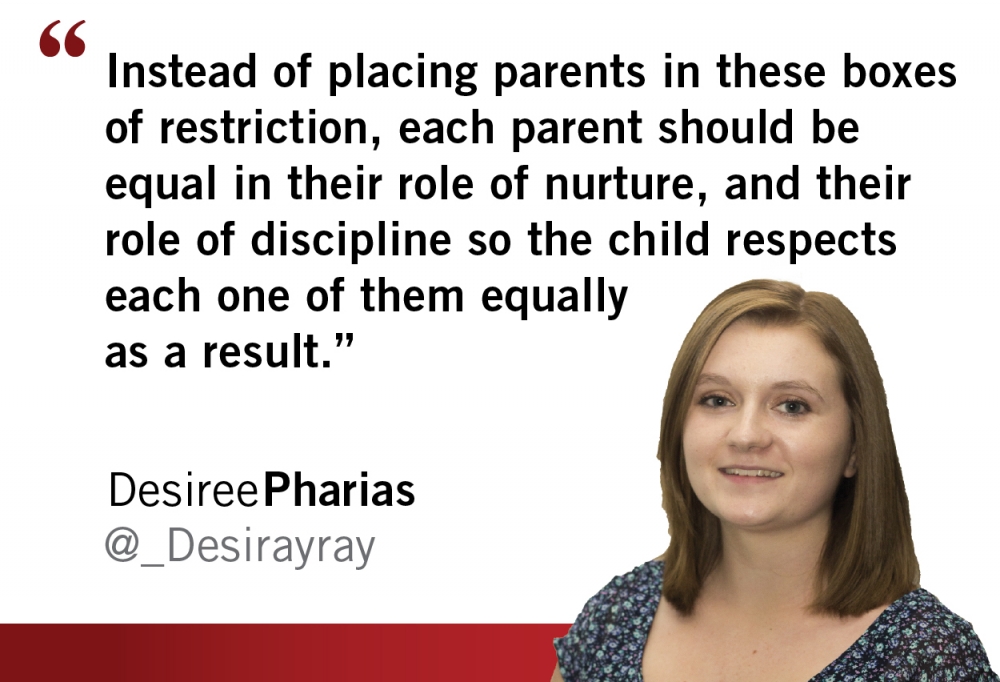First you drew on the wall, then you smashed a ball through a window, all before you came home with an awful progress report. Although the years and incidents changed, your mother’s words never did: “Wait until your father gets home!”
We all remember this feeling. We ran up to our rooms, palms sweating, wondering what Dad would say when he did get home from work. Maybe he would be extra grouchy from a long day at the office… or he would remember that I just got in trouble yesterday, too… I’ll just stay in my room until I’m called out of it.
Recently, Yahoo Parenting published an article titled, “Five Words I’ll Never Say to My Children Again.” Those five words were, “Don’t make me tell Daddy.” Upon using the tactic of discipline she quickly learned it might not be the most effective way to parent.
"When a mom says, ‘Don’t make me tell Daddy’ or ‘Wait until Daddy gets home,’ the child concludes that the father is the source of power, the one who wields justice, who enforces right and wrong," Laura Markham, a child psychologist and the author of "Peaceful Parent, Happy Kids," told Yahoo Parenting.
It is true that a mother virtually hands the power over to the father and husband when this phrase is used. Although I am not a mother myself, I am a daughter, and I can attest to this. My own mother used to use this phrase on my two brothers and I. Soon, my Dad was the scary authority figure, and over time, I didn’t respect my mother when she tried to discipline us. This especially carried over into my teen and preteen years, when the notorious, albeit annoying, back talk begins.
An article on Global Post claims to have the answers when it comes to parenting.
“Too much of the safety-conscious, loving type of mothering can create young children who feel a little smothered and who may even fear trying new things. Too much of the authoritarian, critical type of fathering can create young ones who feel judged and have no source of comfort or unconditional approval and love. Rather, as mentioned before, it's the combination of these types of discipline that give a child a sturdy foundation,” Brooke Julia of Global Post said.
A combination of nurture and discipline is the key to parenting, but what shocked me most is they still credit the father as the one who does the disciplining.

In order to put the parents on an equal playing field, each parent should have a little bit of both sides. Whoever is home with the child, whether it be the mother or the father, should be the one to discipline the child. Or, sit down with the child together and come to a compromise that is coming from both Mom and Dad.
On the opposite side, the Dad should be just as nurturing as the mother, although some might argue it isn’t in the biological makeup, that can be easily disproven.
Parenting is another role that conforms to gender roles. The mother is the nurturer; the father is the strong hand. Instead of placing parents in these boxes of restriction, each parent should be equal in their role of nurture and their role of discipline, so the child respects each one of them equally as a result.
Reach the columnist at dpharias@asu.edu or follow @Dpharias on Twitter.
Editor’s note: The opinions presented in this column are the author’s and do not imply any endorsement from The State Press or its editors.
Want to join the conversation? Send an email to opiniondesk.statepress@gmail.com. Keep letters under 300 words and be sure to include your university affiliation. Anonymity will not be granted.
Like The State Press on Facebook and follow @statepress on Twitter.




